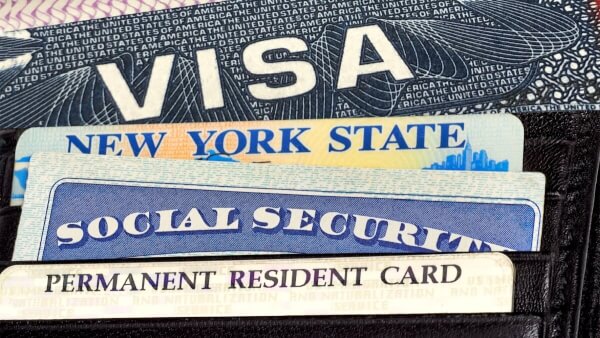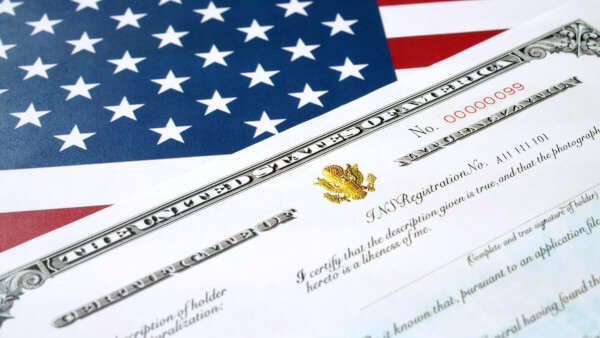Transferring your international driver's license to the US: step-by-step
Your full guide to updating your foreign driver's license to the US.

Nearly 4 million babies are born in the US each year. If you’re a visitor, tourist, or expat planning to have a child in the US, you’re in for a shock. When it comes to health insurance and medical expenses, the system is beyond complicated. In fact, it’s nearly impossible to understand what costs you’ll face, before you start seeing bills.
Here’s a breakdown of the pregnancy and healthcare landscape in America. While you’re bound to feel frustrated at times, the good news is that there are a number of resources to help you.
You can pretty much bet that going through the labyrinthine American medical system as a foreigner will get confusing. It’s confusing for Americans who have spent their whole lives in the US, much less expats who are going through it for the first time.
Lately, political battles have raged over the state of health insurance in America. There is a public healthcare option, instituted by the Affordable Care Act, but you still have to pay fees in the form of premiums and deductibles to use it. Some political contingents are pushing for a universal healthcare system, while other more conservative parties are intent on further privatising the industry. This fight continues to play out on a national level and does not appear to be ending anytime soon. Until it does, the state of American health insurance for the average person is constantly in flux.
To give you some idea of what you might pay, here is a summary of some average costs associated with childbirth. Costs will vary widely depending on your health insurance and even what state you’re in, as well as how your delivery goes:
A tourist or visitor would have to be a little crazy to embark on birth tourism in the US, one of the most complicated and expensive healthcare systems in the world. People are more likely to flee the US in search of better healthcare treatments. Non-residents and visitors are welcome to deliver babies in the US, but they will have to pay out-of-pocket for the privilege unless they have extensive travel insurance or are able to enroll in US insurance.
The money used in the United States is the US dollar. Its currency code is ‘USD’ but more frequently, you’ll see it represented by the symbol ‘$.’ If you’re looking to compare cost in dollars with your home currency, use this quick online currency converter.
| Baby delivery medical procedures in the US | Average cost - without insurance (USD) | Average cost - with private insurance (USD) |
|---|---|---|
| Prenatal doctor visit and care | $100-$200 | $0-$200 |
| Prenatal ultrasound | $200- $300 | $0-$300 |
| Birth and delivery in the hospital | $3,000 - $37,000 | A couple hundred dollars to tens of thousands, depending on your coverage |
| Cesarean section in the hospital | $8,000 - $71,000 | A couple hundred dollars to tens of thousands, depending on your coverage |
| Home birth and delivery with midwife | $1,500 - $5,000 | $0-$1,000 |
In many hospitals, moms can get acquainted with their baby immediately after birth, by engaging in skin-to-skin contact. There are some standard procedures that need to take place quite soon after the baby is born, including getting cleaned and being evaluated. If you’re lucky, you’ll have access to a private room where you and your partner can spend time together and get to know your new family member.
US hospitals are largely privatised, so with incentives to turn over hospital beds, hospitals keep the average stay as brief as can be. New moms stay in the hospital for an average of 1 to 2 days for a normal delivery. If you’ve had a C-section, the average stay is between 2 and 4 days to monitor for any abnormalities.
Given the short turnaround time, you don’t need to overpack to go to the hospital for delivery. However, it’s good to stay prepared. Here are some key items you may want to bring:
When you give birth, bring the following documents to the hospital:
At your child’s birth, the hospital will issue forms you’ll need to file for your baby’s birth certificate. The hospital may submit the paperwork for you, as well as a Social Security form, to your county clerk. Then, you’ll go to the clerk in-person to register for your baby’s birth certificate. You’ll need:
If your child is born in the US or a US territory, they will become a US citizen. A person can have dual citizenship with the US and another country, but the law varies depending on the American relationship with the other country. American citizenship law is complex. Look into the specifics of your home country for additional information.
The US is 1 of the 4 countries in the world that doesn’t legally mandate paid maternity leave, along with Swaziland, Lesotho, and Papua New Guinea. It goes without saying that there’s no legally mandated paternity leave.
Compared with your home country, you’ll probably find American maternity policies to be quite unforgiving. If you’re employed, your leave is instituted by the company for which you work. This leave can range from 0 days to several months, depending on the size and generosity of your employer. The average leave is about 10 weeks. Often, moms and dads cobble together maternity leave through a combination of sick days, holidays, and accrued time off.
As an expat, you probably feel like you have one foot in one place, and one foot in another. The last thing you need is headaches around managing your bills and banking. That’s where Wise comes in. Wise is a currency exchange platform that allows you to exchange money without all the markups, charges, and unfair exchange rates that banks put on you.
For additional convenience, Wise allows you to access a borderless multi-currency account and an associated debit card. With borderless, you can manage money across 50 plus countries, sending, receiving, and spending in dozens of currencies, including the US dollar.
Becoming a new parent in America is a complicated process, so it’s that much more important to do your research ahead of time. Refer back to this guide when you need a resource for addressing your questions and concerns.
*Please see terms of use and product availability for your region or visit Wise fees and pricing for the most up to date pricing and fee information.
This publication is provided for general information purposes and does not constitute legal, tax or other professional advice from Wise Payments Limited or its subsidiaries and its affiliates, and it is not intended as a substitute for obtaining advice from a financial advisor or any other professional.
We make no representations, warranties or guarantees, whether expressed or implied, that the content in the publication is accurate, complete or up to date.

Your full guide to updating your foreign driver's license to the US.

Whatever your reason is for moving to the US, this guide aims to help you figure out the most important costs you'll face when you live there.

Find all you need to know about getting a personal loan for H-1B visa holders in this guide.

Everything you need to know about the US certificate of naturalization.

The US welcomes large numbers of new arrivals every year — and getting a great job to both gain experience and set down roots is a core part of the American...

Find everything you need to know about the US citizenship test, including the USCIS questions and answers.